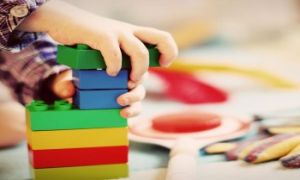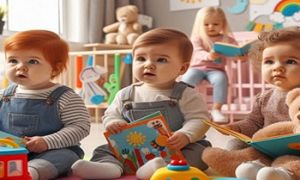It is the duty of adult caregivers to ensure that young children are exposed to only age-appropriate media content. However, it may not always be possible to keep news about tragic events like natural disasters or accidents, happening both near and far. Whether or not, children ask about such news or comment on them, educators need to engage with children on such matters. But talking about tragic events can be tricky as a fine balance has to be kept between being truthful and positive.
So if you are an educator, here are a few guidelines for talking to children about tragic events.
- Foster positive associations about talking and listening so that children feel safe to ask questions or discuss in the classroom.
- If a tragic event has recently taken place, invite children to talk about their thoughts and feelings about it.
- If any child seems unwilling to talk, avoid pressing them. Instead, take the initiative to open the conversation about the event and its aftermath. You could begin by saying, “As you know, there was a (nature of accident in place name). Many people were killed or injured. I would like to talk with you about this and answer any questions or worries you may have”.
- You do not have to share gruesome details of the event; keep information simple but truthful – the former will support children to understand what has happened while the latter will help them clear up any misinformation.
- Expect children to ask the same questions over and over in their efforts to make sense of events.
- Explore with children words like, “sad”, “worried”, “safe”, and “hurt” to help them express what they are feeling in relation to the tragic event.
- Bear in mind that children may open up about the event while you have a conversation or after a few days so let them take their time.
- Let them know that it is OK to cry if they feel like doing it.
- Provide non-verbal options to children to express their feelings and thoughts about the event – this could through pretend play, playground play or activities like drawing and colouring. Engage with them in their activities so that you can identify cues that indicate their willingness to talk about the event.
- When children want to know why something tragic happened, look for age-appropriate explanations like ‘We don’t know yet how this [accident] happened. Sometimes things break/ go wrong/and people make mistakes in ways that nobody was expecting. These events are extremely rare but very scary and sad for the people involved. This acknowledges the severity of the event but also reassures them that it is an unlikely event. Finally, talk to children about all the people like aid workers and emergency personnel who are helping the injured or working to make the world a safer place.
Reference:
Guidelines For Parents, Caregivers and Teachers, Psychology


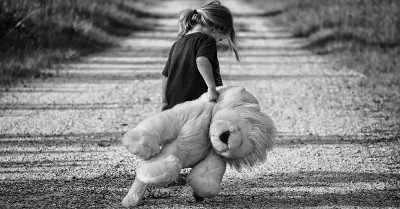

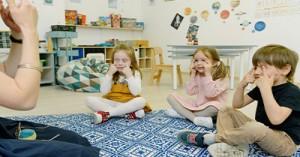


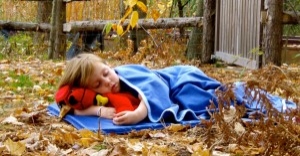 In Norway and most other Scandinavian countries, children nap in the outdoors. According, to research outdoor sleeping not only promotes better daytime sleeping, but it
In Norway and most other Scandinavian countries, children nap in the outdoors. According, to research outdoor sleeping not only promotes better daytime sleeping, but it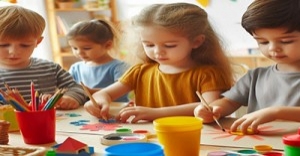 The following article lists 30 art and craft descriptions and links to the EYLF. These can be used as a blurb, during observations, used for
The following article lists 30 art and craft descriptions and links to the EYLF. These can be used as a blurb, during observations, used for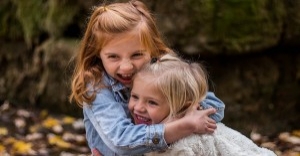 Feel Good Feb is dedicated to saying thanks, expressing gratitude, and promoting good deeds and random acts of kindness.
Feel Good Feb is dedicated to saying thanks, expressing gratitude, and promoting good deeds and random acts of kindness.
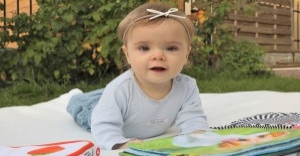 From the earliest months of life, babies thrive when given opportunities to experience the outdoors. Nature is not just a backdrop for play—it is a
From the earliest months of life, babies thrive when given opportunities to experience the outdoors. Nature is not just a backdrop for play—it is a Across the early childhood education and care sector, educators are sounding the alarm: current staffing ratios are insufficient to deliver safe, meaningful, and developmentally appropriate
Across the early childhood education and care sector, educators are sounding the alarm: current staffing ratios are insufficient to deliver safe, meaningful, and developmentally appropriate Thanks to the new National Model Code and upcoming regulatory changes under the National Quality Framework (NQF), early childhood services across Australia must now implement
Thanks to the new National Model Code and upcoming regulatory changes under the National Quality Framework (NQF), early childhood services across Australia must now implement In the quiet hum of a weekday morning, something felt off. Preschool doors opened, but classrooms remained silent. No greetings. No redirection. No educators. And
In the quiet hum of a weekday morning, something felt off. Preschool doors opened, but classrooms remained silent. No greetings. No redirection. No educators. And A: In early childhood education and care (ECEC) settings across Australia, mobile phone use by educators is now subject to strict national reforms aimed at
A: In early childhood education and care (ECEC) settings across Australia, mobile phone use by educators is now subject to strict national reforms aimed at The end of the year is a busy and emotional time in early childhood services. Many services close for a short period over Christmas, and
The end of the year is a busy and emotional time in early childhood services. Many services close for a short period over Christmas, and In early childhood education and care, child safety is not just a number—it’s a practice. While educator-to-child ratios are essential, they are only one part
In early childhood education and care, child safety is not just a number—it’s a practice. While educator-to-child ratios are essential, they are only one part